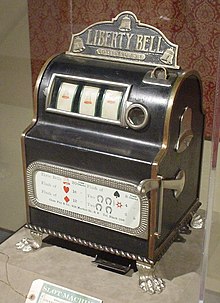A Brief History
On January 17, 2010, Stephanie Peatling, writing for The Sydney Morning Herald, reported that there “is now one poker machine for every 110 people in Australia, putting the nation in the top 10 of international gambling meccas, alongside Monaco and Macau.” Anyone alive and using the internet today can attest to the fact that slot machines are advertised practically everywhere. Hugely popular across the web, they are played by people of all demographics and seem to enjoy a mass appeal. Given that we are so familiar with seeing them online, however, it can be easy to forget that they are far from some new-fangled invention. First brought into being in 1895, they actually have a long and storied history behind them. Let us take a look at it in a little more detail.
Digging Deeper
Beginnings

In our modern world, there are numerous websites out there with the most up to date tips and bonuses. Sharing everything from which casinos are the most mobile-friendly to where you can find the best offers and promotions, they make it very easy to forget how old slot machines actually are.
In fact, slots did not have their beginnings on the internet, but rather at the close of the 19th century, when a Californian named Charles Fey invented the first machine. Linking up with the Mills Novelty Company in 1905, Fey went on to further develop his idea, the resultant invention being the famous “Liberty Bell”.
The Liberty Bell was a unique and innovative creation: a machine that featured three separate spinning reels. Incredibly heavy to transport, due to its cast iron composition, it nonetheless spread throughout America, with its popularity rapidly snowballing.
Soon found in bars and cigar shops across the USA, this amazing invention offered players the chance to win an array of prizes, typically sweets or cigarettes – money was not on the cards at all!
The anti-gambling movement

Despite its early popularity, the slot machine industry soon encountered a problem: the anti-gambling movement. Rearing its head as the 19thcentury progressed into the 20th, this made for a difficult period for manufacturers, and many fell upon hard times.
It began in San Francisco, with slot machines banned throughout the city. This statute then extended throughout the state of Nevada, and then the entirety of California, marking many dark days for those who relied on the sector for their livelihood.
By the 1930s, this anti-gambling rhetoric had been taken up by politicians too, and was widely used to help secure the popular vote. So fierce did anti-gambling sentiment become that many slots machines were actually thrown into the sea in a dramatic protest against them.
Changing times

Thankfully for the slot machine industry, this anti-gambling ethos did not endure forever. With the passing of the Second World War, the focus increasingly turned to having fun and by the mid-1940s onwards, slots were once more beloved.
This led to an evergrowing slew of developments, which was facilitated and exacerbated by rapidly progressing technology. Indeed, by the 1960s, electrical advances had transformed old-fashioned fruit machines into the mechanical marvels whose echoes can still be seen today.
From there, the story is one we all know: slot machines continued to be popular, the internet brought them to an ever-widening audience, and now there are more bright and shiny options out there for gamblers than ever before. From the ashes of adversity, the phoenix undoubtedly rose – and soars higher and higher with every passing day, to Australia and beyond!
Question for students (and subscribers): How has gambling influenced modern history? Please let us know in the comments section below this article.
If you liked this article and would like to receive notification of new articles, please feel welcome to subscribe to History and Headlines by liking us on Facebook and becoming one of our patrons!
Your readership is much appreciated!
Historical Evidence
For more information, please see…
Fey, Marshall. Slot Machines: A Pictorial History of the First 100 Years. Liberty Bell Books, 1997.
Mead, David N. Reel History, a Photographic History of Slot Machines. Mead Publishing Co., 2005.
The featured image in this article, a photograph by Rodw of slot machines at Wookey Hole Caves, a show cave and tourist attraction in the village of Wookey Hole on the southern edge of the Mendip Hills near Wells in Somerset, England, has been released by the copyright holder of this work into the public domain worldwide.


